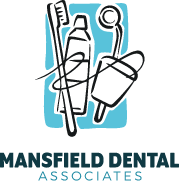Plaque. You hear about it in mouthwash commercials. Your dentist warns you about it at every checkup. Gum disease and tooth decay, the two most prevalent oral health problems in the U.S., are caused by plaque buildup. Today, we’re taking a closer look at the life and legacy of this sticky, yucky, bacteria-laden substance.
Plaque: The Early Days
At first, plaque isn’t really all that bad. Just a normal part of the daily cycle of eating and drinking and easy enough to get rid of with good brushing. Dental plaque belongs to a group of biological substances called biofilms, colonies of bacteria that bond to each other and to any nearby surfaces (in this case, the enamel). The hundreds of different types of bacteria that create plaque grow naturally in the mouth and are subject to environmental factors within the oral environment, like pH, saliva, temperature, and oxygen levels.
Becoming Calculus
Brushing your teeth is so easy, even a toddler can do it. But too often, we skip a night or two, promising ourselves to make it up with an extra good brushing the next night. By that time, however, it just might be too late. After about 48 hours, plaque calcifies and turns into a hard, mineralized substance that no amount of brushing or flossing at home can remove. In fact, only handheld and ultrasonic cleaning instruments (the kind typically used at a routine dental cleaning) can eliminate calculus.
Plaque’s Symphony of Destruction
Calculus has a rough, stable surface, perfect for attracting further plaque buildup. The bacteria colonies ferment sugar particles left over from meals and snacks. The fermentation process produces acid, and an excessively acidic oral environment ruins your smile in two ways:
- First, acid leaches the minerals from your tooth enamel, creating the demineralized patches that signal the onset of tooth decay. Plaque further invades these demineralized patches, delving into the tooth and creating cavities.
- Second, plaque and tartar trap acids against the gum line. The resulting irritation and inflammation triggers the onset of gingivitis and, eventually, full-blown gum disease.
Fighting Back
Left to its own devices, plaque causes bad breath, cavities, infections, and lost teeth. Current research suggests it can even prove detrimental to your cardiovascular health. You can easily control plaque buildup via regular brushing and flossing and reducing the amount of refined sugar you eat every day. You don’t need fancy equipment or a whole lot of time to fight back against plaque.
About Mansfield Dental Associates:
At Mansfield Dental Associates, Dr. Blair Jones and Dr. Seth Harris share the same vision and philosophy when it comes to patient care. We provide thorough, compassionate preventive dental services in addition to a full menu of restorative, cosmetic, and prosthetic dentistry. Contact our Mansfield, TX dentist office at 817-473-6227 to schedule your next appointment.





Recent Comments